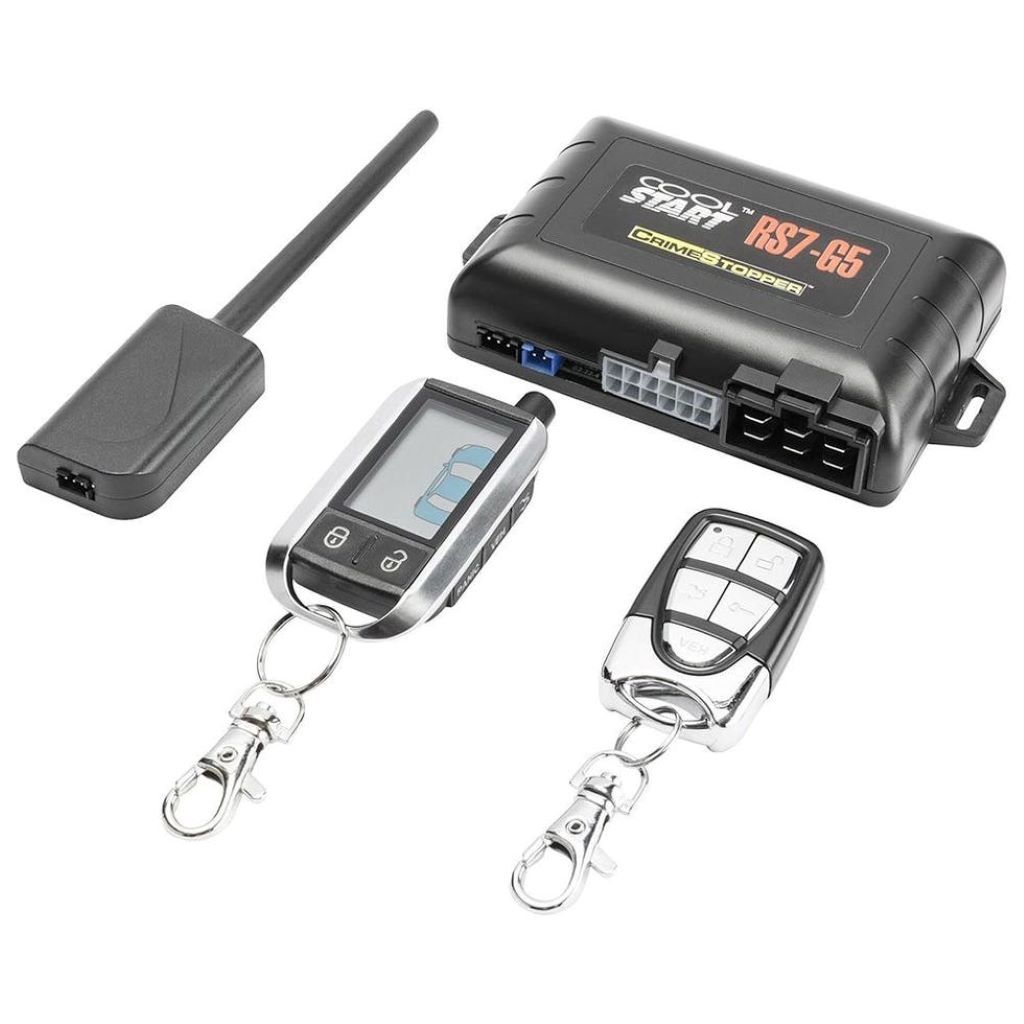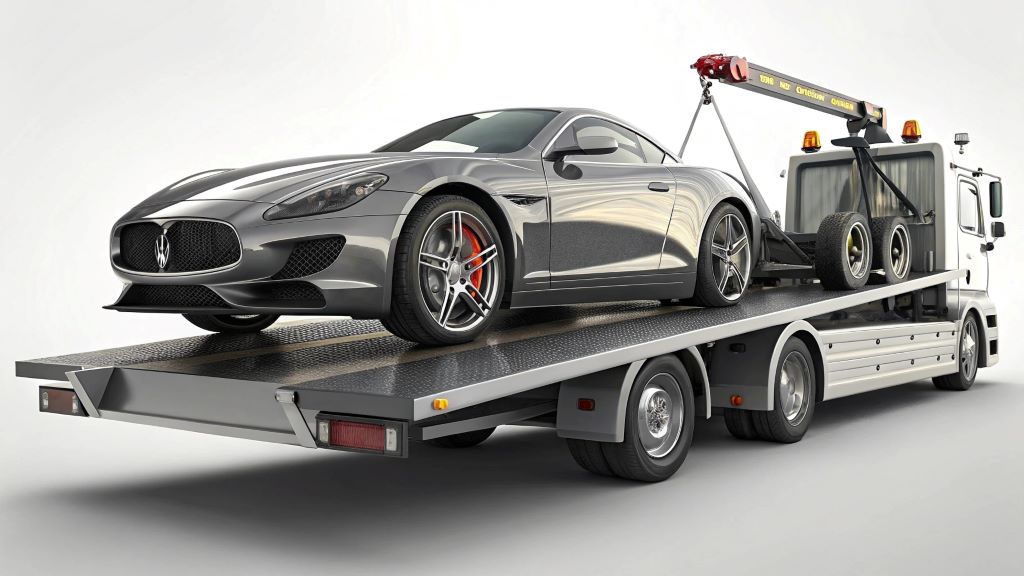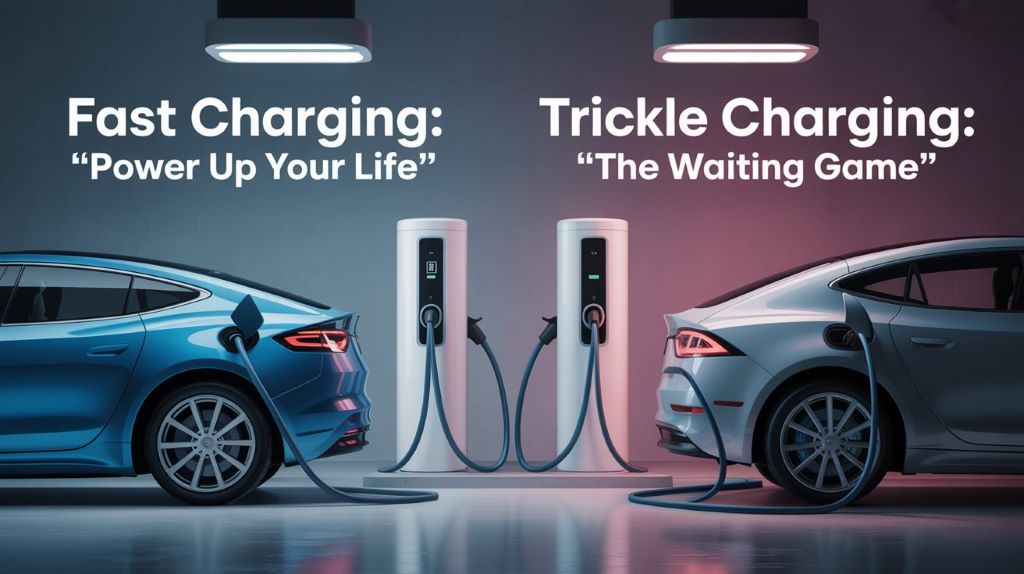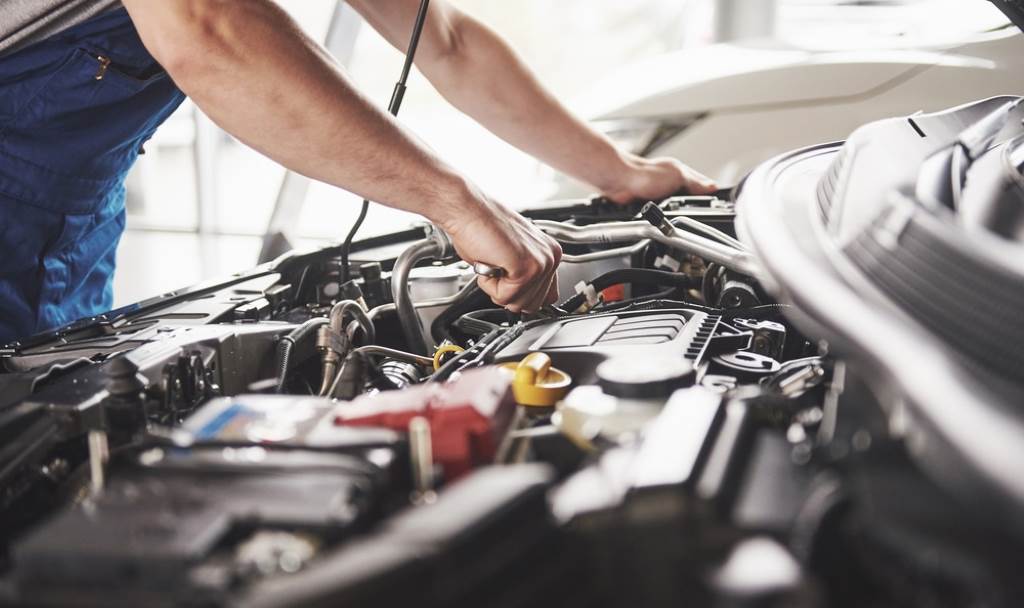Imagine stepping out into a freezing winter morning, your breath visible in the crisp air, only to slide into a warm, toasty car that’s been running for minutes without you touching the ignition. Or picture starting your vehicle from your office window on a scorching summer day, letting the AC cool the interior before you even open the door. This magic is made possible by an automatic car starter, a device that’s transforming how we interact with our vehicles. Whether you’re a busy parent, a tech enthusiast, or someone who just hates scraping ice off windshields, automatic car starters are a game-changer.
In this comprehensive guide, I’ll walk you through everything you need to know about these devices, from how they work to their benefits, challenges, and what’s next for this technology. Buckle up, because we’re diving deep into the world of remote start systems.
What Is an Automatic Car Starter?
Definition and Functionality
An automatic car starter, often called a remote start system, allows you to start your vehicle’s engine from a distance, typically using a key fob, smartphone app, or even voice commands. Once activated, the system engages the ignition, starts the engine, and often runs climate control systems to prepare the car for your arrival. Most systems let you start the car from 100 to 1,000 feet away, depending on the model, with premium versions offering ranges up to a mile.
The logic behind this is simple: convenience and comfort. By starting the engine remotely, you can warm up or cool down the interior, defrost windows, or even charge hybrid batteries before driving. According to a 2023 survey by AAA, 68% of drivers in cold climates value remote start for its ability to preheat vehicles, while 54% in warmer regions appreciate pre-cooling. These systems are especially popular in extreme weather regions, where temperature control is a daily necessity.
Types of Automatic Car Starters
Not all automatic car starters are created equal. Here’s a breakdown of the main types:
- One-Way Remote Starters: These use a key fob to send a signal to the car. They’re affordable but limited, as you don’t get confirmation that the car has started. Popular for budget-conscious buyers.
- Two-Way Remote Starters: These provide feedback, often via a light or sound on the fob, confirming the car is running. Some display temperature or battery status, adding peace of mind.
- Smartphone-Controlled Starters: The latest trend, these let you start your car via an app. Brands like Viper and Compustar offer apps with features like GPS tracking and lock/unlock functions.
- OEM-Integrated Systems: Many new cars (e.g., Toyota, Ford) come with factory-installed remote start, often tied to subscription services like FordPass. These are seamless but can be pricier due to subscriptions.
Each type has trade-offs. One-way systems are cheaper but less reliable in terms of feedback, while smartphone apps offer convenience but may require annual fees. Your choice depends on your budget, tech comfort, and vehicle compatibility.
The Evolution of Automatic Car Starters
Historical Context
Remote start systems date back to the 1980s, when aftermarket companies began experimenting with basic key-fob starters. Early models were clunky, with limited range and frequent reliability issues. By the 1990s, brands like Directed Electronics (makers of Viper) refined the technology, introducing two-way systems and better security features. The logic here was to pair convenience with theft prevention, as early systems sometimes left cars vulnerable.
Fast-forward to the 2000s, and automakers like GM and Ford started offering factory-installed remote start on premium models. A 2019 report by Statista noted that 22% of new vehicles in the U.S. included remote start as a standard or optional feature, a number that’s climbed to 35% by 2024. This growth reflects consumer demand for convenience and advancements in vehicle electronics.
Technological Advancements
Today’s automatic car starters are light-years ahead of their predecessors. Modern systems integrate with vehicle CAN bus networks, allowing seamless communication with the car’s computer. Smartphone apps have revolutionized the game, with 47% of remote start users preferring app-based systems, per a 2024 AutoTech survey. Features like geofencing (auto-starting when you’re near the car) and voice control via Alexa or Google Assistant are becoming standard in high-end models.
The logic behind these advancements is user-centric design. Manufacturers know drivers want seamless, intuitive tech that fits their lifestyle. For example, Compustar’s DroneMobile app lets you start your car from anywhere with cell service, a boon for urban dwellers who park far from home. However, some argue these systems are over-engineered, adding complexity and cost. A mechanic I spoke with noted that older, simpler fob-based systems are often more reliable than app-dependent ones, which can glitch during network outages.
Why Automatic Car Starters Are a Game-Changer
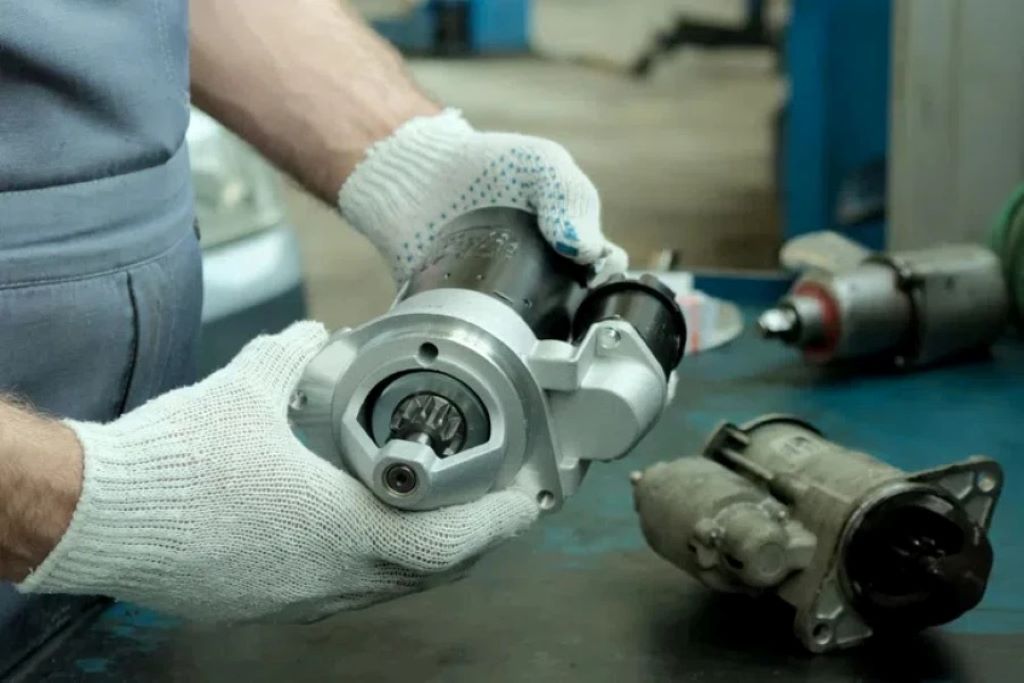
Convenience and Comfort
Let’s be real: there’s nothing like stepping into a pre-warmed or pre-cooled car. In a 2023 Consumer Reports survey, 82% of remote start users said it improved their daily driving experience, especially in winter. For parents, remote start is a lifesaver, letting you warm up the car while buckling kids into car seats. In hot climates, cooling the interior prevents burns from scalding seats or steering wheels.
The logic is straightforward: time and comfort are precious. Starting your car remotely saves you from waiting in extreme weather, and modern systems can even activate heated seats or steering wheels. However, critics argue this convenience comes at a cost, as idling engines burn fuel unnecessarily. I’ll address this in the environmental section below.
Safety and Security Benefits
Automatic car starters aren’t just about comfort; they enhance safety and security. Defrosting windshields remotely improves visibility, reducing accident risks. The National Highway Traffic Safety Administration (NHTSA) reports that poor visibility contributes to 11% of winter crashes, so this is no small benefit. Security-wise, most systems lock the car during remote start and disable the ignition unless the key is present, deterring theft.
On the flip side, some experts warn that poorly installed systems can bypass factory security, creating vulnerabilities. A 2022 study by iSeeCars found that vehicles with aftermarket remote starters were 15% more likely to be targeted by thieves if not installed correctly. The solution? Always choose reputable installers and brands with robust encryption, like Viper or Clifford.
Fuel Efficiency and Environmental Impact
One criticism of automatic car starters is their environmental impact. Idling engines consume fuel and emit CO2, which seems counterintuitive in an eco-conscious world. A 2021 EPA study estimated that idling for 10 minutes daily adds 50-100 pounds of CO2 emissions annually per vehicle. However, modern systems mitigate this by limiting idle time (typically 10-15 minutes) and integrating with hybrid systems that minimize fuel use.
Proponents argue the environmental cost is negligible compared to the benefits, especially for short idling periods. For example, warming up a cold engine can improve fuel efficiency by reducing wear, per a 2023 SAE International study. My take? If you’re eco-conscious, opt for a system with adjustable idle settings or consider a hybrid vehicle with remote start, which relies on electric power for climate control.
Challenges and Drawbacks
Installation Complexities
Installing an automatic car starter isn’t always straightforward. Aftermarket systems often require wiring into the vehicle’s electrical system, which can take 2-6 hours for a professional. A 2024 Car and Driver article noted that improper installation can cause electrical issues, like drained batteries or malfunctioning alarms. For newer cars with complex electronics, compatibility is another hurdle.
The logic here is risk versus reward. DIY installation might save money but risks damaging your car. Professional installation, while pricier ($200-$600), ensures reliability. Some argue that factory-installed systems eliminate these headaches, but they’re not available on all models and often require subscriptions.
Cost Considerations
Cost is a major factor. Basic one-way starters start at $100, while two-way or smartphone-controlled systems can run $300-$800, plus installation. OEM systems, like those from Toyota or BMW, often require monthly fees ($8-$20) for app access. A 2024 Kelley Blue Book survey found that 41% of buyers balk at these costs, especially for budget vehicles.
However, others see it as a worthwhile investment. If you live in a harsh climate or rely on your car daily, the comfort and convenience justify the price. My advice: weigh the cost against how often you’d use it. If you’re in a mild climate, a basic system might suffice.
Potential Risks and Reliability Issues
Reliability is another concern. Extreme weather can interfere with signal range, and smartphone apps depend on network stability. A 2023 Reddit thread on r/cars highlighted user complaints about app-based systems failing during storms. There’s also the risk of idling in enclosed spaces, which can lead to carbon monoxide poisoning if not used carefully.
The counterargument is that these risks are manageable with proper use and quality systems. Brands like Compustar and Viper have excellent track records, and most systems include safety features like automatic shutoff. The key is educating yourself before buying.
Choosing the Right Automatic Car Starter
Key Features to Look For
When shopping for an automatic car starter, prioritize these features:
- Range: Look for at least 500 feet for urban use; 1,000+ feet for rural areas.
- Security: Ensure it has encryption and immobilizer compatibility.
- Feedback: Two-way or app-based systems confirm successful starts.
- Climate Control Integration: Activates heat/AC automatically.
- Idle Time Settings: Adjustable to minimize fuel waste.
A 2024 MotorTrend review emphasized range and security as top priorities, especially for high-theft areas. Don’t skimp on these, as cheap systems often lack robust protection.
Top Brands and Models
Based on performance and user reviews, here are top picks for 2025:
- Viper 5706V: Two-way system with 1-mile range, great for security. ~$400.
- Compustar CSX4900-S: Smartphone-compatible, 3,000-foot range. ~$350.
- Avital 4105L: Budget-friendly one-way starter. ~$150.
- FordPass Remote Start: OEM option for Ford vehicles, app-based. Subscription required.
These models balance cost, features, and reliability, per a 2024 CNET guide on remote starters. Always check user reviews on sites like Amazon for real-world feedback.
Compatibility with Your Vehicle
Not every starter works with every car. Manual transmissions, diesel engines, and push-to-start systems require specific models. A 2023 Popular Mechanics article stressed checking compatibility before buying, as mismatches can lead to installation failures. Contact the manufacturer or a trusted installer to confirm fitment.
Installation and Maintenance Tips
Professional vs. DIY Installation
Professional installation is the gold standard. Certified technicians ensure proper wiring and compatibility, reducing risks of electrical issues. DIY kits are available, but unless you’re an experienced auto electrician, they’re risky. A 2024 AutoBlog post reported that 30% of DIY installations result in malfunctions within a year.
If you go DIY, follow the manual meticulously and invest in a wiring harness specific to your vehicle. For most drivers, spending on professional installation is worth the peace of mind.
Maintenance for Longevity
To keep your system running smoothly:
- Check Batteries: Replace key fob batteries annually.
- Test Range: Ensure signals aren’t weakening over time.
- Update Apps: Keep smartphone apps current to avoid glitches.
- Inspect Wiring: Have a pro check connections every 2-3 years.
Regular maintenance prevents costly repairs and ensures reliability, especially in extreme weather.
How To Find The Best Auto Body Shop For Your Collision Repairs
The Future of Automatic Car Starters
Integration with Smart Technology
The future of automatic car starters lies in smart integration. By 2027, 60% of new vehicles are expected to include app-based remote start, per a 2024 Bloomberg report. Systems will sync with smart homes, allowing commands like, “Alexa, start my car.” Geofencing and AI will predict when you need your car ready, enhancing efficiency.
However, privacy concerns loom. App-based systems collect data, raising questions about security. A 2023 Wired article warned that poorly secured apps could expose user locations. Manufacturers must prioritize encryption to address this.
Autonomous Vehicles and Remote Start
As autonomous vehicles evolve, remote start could take on new roles, like pre-positioning self-driving cars. A 2024 TechCrunch piece speculated that remote start systems might integrate with Level 4 autonomy, allowing cars to start and drive to your location. This could revolutionize urban mobility but faces regulatory hurdles.
Regulatory and Environmental Trends
Regulations may shape the future. The EPA’s 2025 proposal to limit idling (mentioned in a May 2025 X post) could push manufacturers to develop eco-friendly starters, like those for EVs that rely on battery power. Expect stricter emissions standards and incentives for green tech.
FAQs About Automatic Car Starters
Q: Are automatic car starters safe to use?
A: Yes, if installed correctly. Modern systems lock the car and disable the ignition without the key, preventing theft. Always avoid idling in enclosed spaces to prevent carbon monoxide risks.
Q: Can I add a remote starter to a manual transmission car?
A: Yes, but it requires a specific system with a clutch bypass. Consult a professional installer to ensure safety and compatibility.
Q: How much does an automatic car starter cost?
A: Prices range from $100-$800, plus $200-$600 for installation. OEM systems may include subscription fees ($8-$20/month).
Q: Do remote starters void my car’s warranty?
A: Not typically, if installed professionally. The Magnuson-Moss Warranty Act protects consumers, but check with your dealer to confirm.
Q: Are there eco-friendly remote start options?
A: Yes, hybrid and EV-compatible systems minimize fuel use. Look for models with adjustable idle times to reduce emissions.
Conclusion
Automatic car starters have come a long way from clunky key fobs to sleek, app-driven systems that blend convenience, safety, and tech. They’re a must-have for drivers in extreme climates, offering unmatched comfort and peace of mind. While challenges like cost, installation, and environmental impact exist, the benefits often outweigh the drawbacks, especially with modern, efficient designs. As smart technology and autonomous vehicles reshape the auto industry, remote starters will only get smarter, greener, and more integrated into our lives. Whether you’re a tech geek or just tired of freezing in your car, an automatic car starter is an investment worth considering. Stay informed, choose wisely, and enjoy the drive.
Read More:
Stabilizer Bar: What is it? How does it work?

